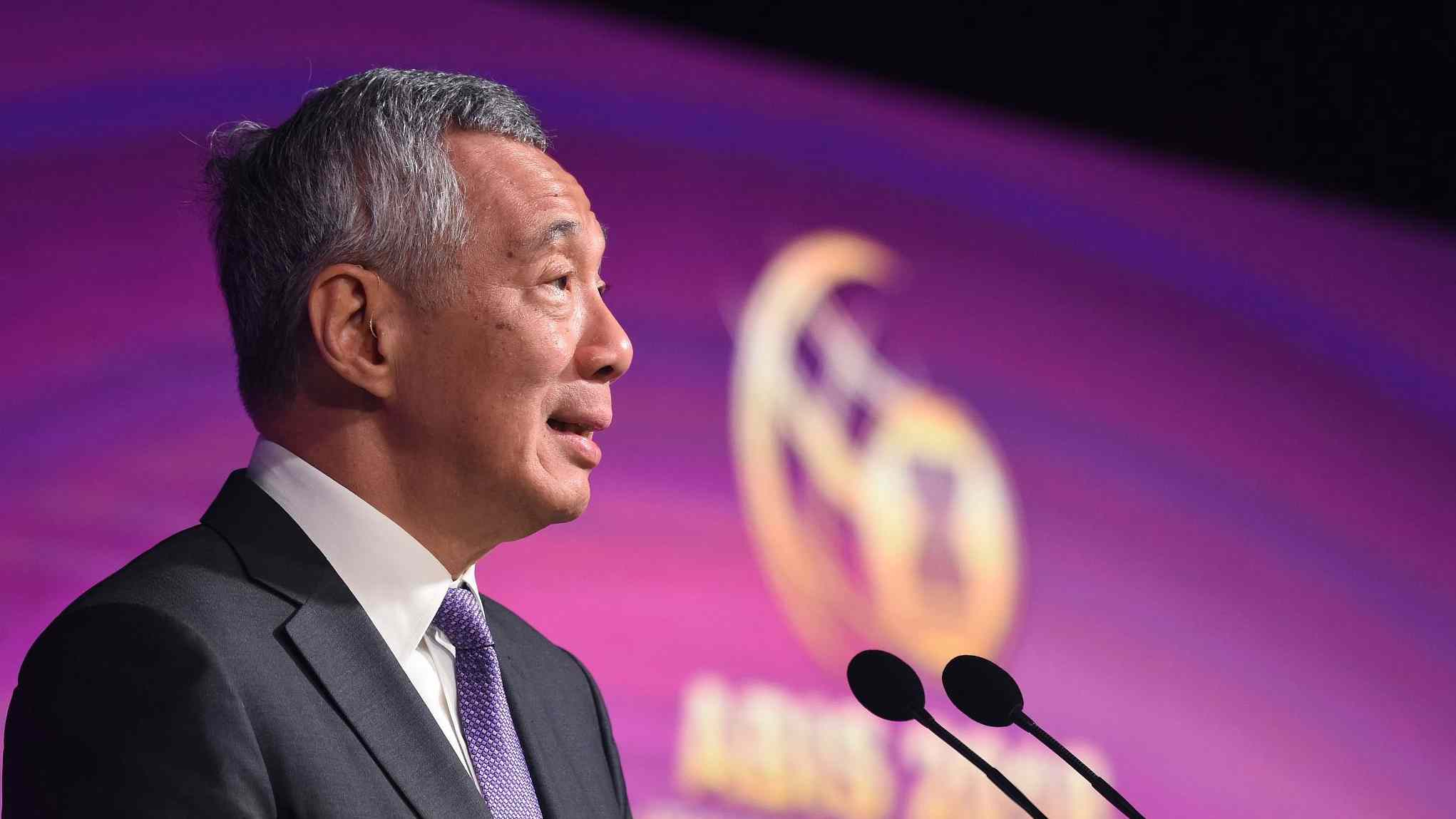Singapore's Prime Minister Lee Hsien Loong said on Thursday that China and the United States must find a way to remain competitive in certain areas but avoid allowing rivalry to ruin cooperation in other areas as the evolution of the bilateral relationship could shape the international order.
"Ideally, this competition will take place within an agreed multilateral framework of rules and norms of the kind that govern the United Nations and the World Trade Organization (WTO)," said Lee in an op-ed published on the website of the Foreign Affairs magazine.
In the article titled "The Endangered Asian Century," Lee said that the two countries now have come to a point that "each face fundamental choices," deciding how they are going to view and treat each other.

Singapore's Prime Minister Lee Hsien Loong speaks at a business forum on the sidelines of the 33rd Association of Southeast Asian Nations (ASEAN) summit in Singapore, November 12, 2018. /VCG
Singapore's Prime Minister Lee Hsien Loong speaks at a business forum on the sidelines of the 33rd Association of Southeast Asian Nations (ASEAN) summit in Singapore, November 12, 2018. /VCG
He noted that many Asian countries, which have long regarded developed countries as their main economic partners including the U.S., now see huge opportunities in China as the country "went from being economically inconsequential for the rest of Asia to being the region's biggest economy and major economic partner" in the past few decades.
Thus, the future development of the relationship between the U.S. and China will cast influence not only in Asia's future, but the possible reshaping of the international order.
"The path to creating a new order is not straightforward," Lee said, adding that confrontation prompted by any country's choices of moves could last decades as "unlikely to end as the Cold War did, in one country's peaceful collapse."
The Southeast Asian country's prime minister also said that Asian countries don't want to be forced to take sides. And if either of the two tries to do so, it will "begin a course of confrontation that will last decades and put the long-heralded Asian century in jeopardy."